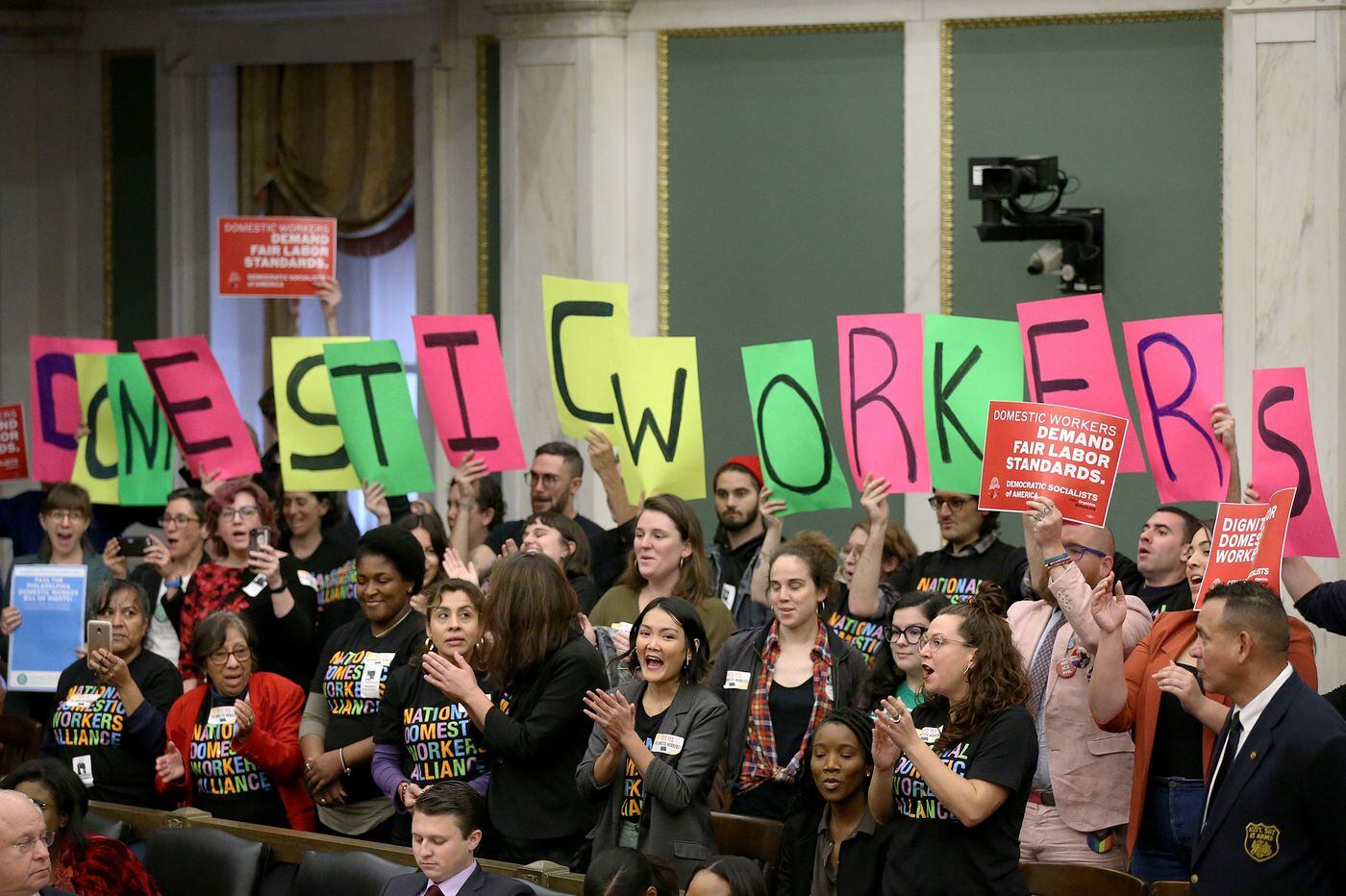
On Wednesday, October 31, 2019, the Philadelphia City Council unanimously passed a Domestic Workers’ Bill of Rights. Officially, the City Council amended a chapter in its “Fair Practices Ordinance: Protections Against Unlawful Discrimination.” The Council amended the chapter entitled “Promoting Healthy Families and Workplaces,” by adding a new chapter, “Protections for Domestic Workers,” “all to provide protections for domestic workers and to establish remedial and enforcement provisions, all under certain terms and conditions.”
As the City Council put it, this “landmark” legislation “provides protections and rights for domestic workers that will give the city one of the strongest laws in the country.” The bill’s principal sponsor, City Councilwoman Maria Quinoñes-Sánchez, explained, “The women have bravely told their stories about non-payment and sexual harassment, and despite their challenges whether they are undocumented or not, they have helped us put together not only the best piece of legislation, but a task force that is going to ensure the implementation with a comprehensive education campaign.” Director of the Pennsylvania Domestic Workers Alliance, Nicole Kligerman, added, “Domestic workers have been excluded from all labor protections in the history of the U.S. Today, for the first time, Philadelphia domestic workers have won the same rights and protections that all other workers have in Philadelphia. We’re the largest city to do so and it’s the best law in the country.”
Nine states have passed versions of Domestic Workers’ Bills of Rights: Oregon, California, Connecticut, Illinois, New York, Massachusetts, Hawaii, and Nevada. This year, Seattle also passed a Domestic Workers’ Bill of Rights. Each version is more expansive, more specific. In July, Senator Kamala Harris and Representative Pramila Jayapal introduced the federal Domestic Workers Bill of Rights Act. From coast to coast, state by state, city by city, the racially based exclusion of domestic workers from the dignity of labor protections is being challenged and overturned.
At each turn, domestic workers have exhibited organizational prowess and extraordinary courage and bravery, as Councilwoman Quinoñes-Sánchez noted. While domestic workers’ courage and bravery is admirable, why must they be heroic in order to attain the basic rights workers are meant to have? What is the regime of intimidation and, at times, terror that blankets the work and labor of care givers, nannies, and housekeepers? How will we pay for the decades of pain and suffering inflicted on mostly women of color, all in the name of “economic growth”, all the while chanting the “our” domestic workers are treated “like one of the family”?
These are questions for down the road. But for now, it’s time for celebration. In October 2019, South African domestic workers won a major victory in the courthouse, and Philadelphia domestic workers won a major victory in the City Hall. Both of these victories are landmark events that expand and deepen domestic workers’ rights, dignity and power everywhere. The struggle continues.
(Photo Credit: (Tim Tai / Philadelphia Inquirer)
